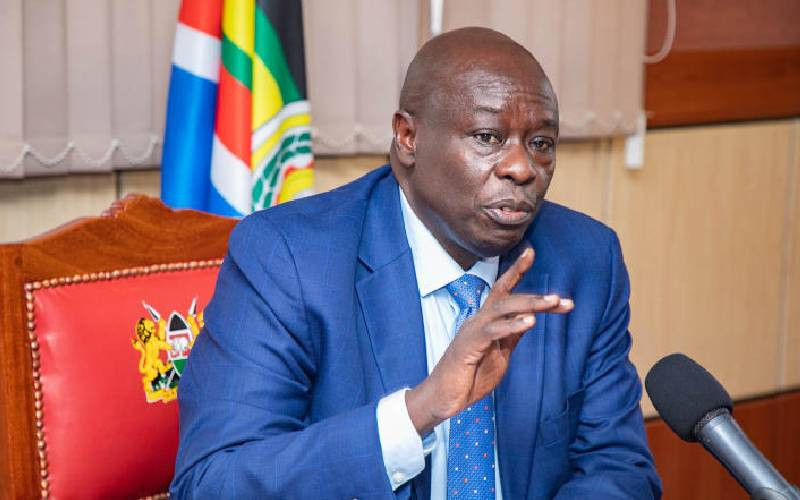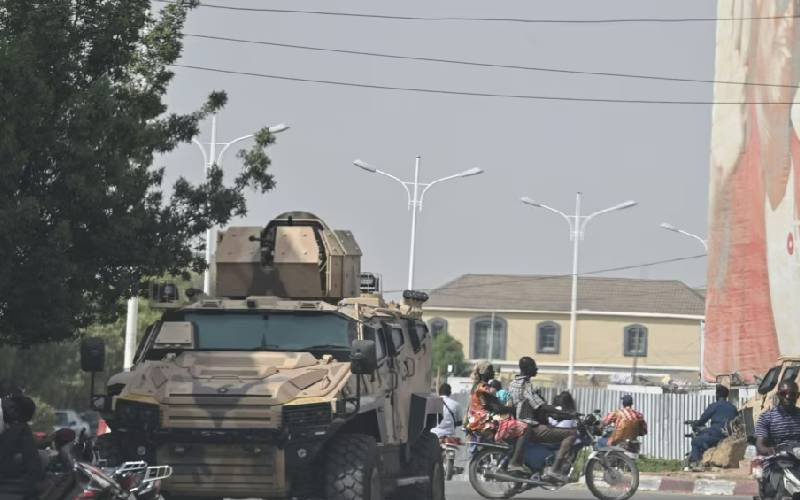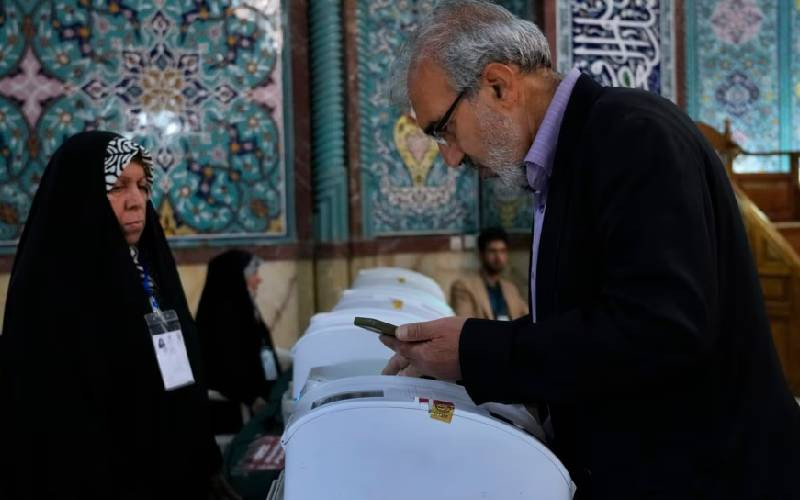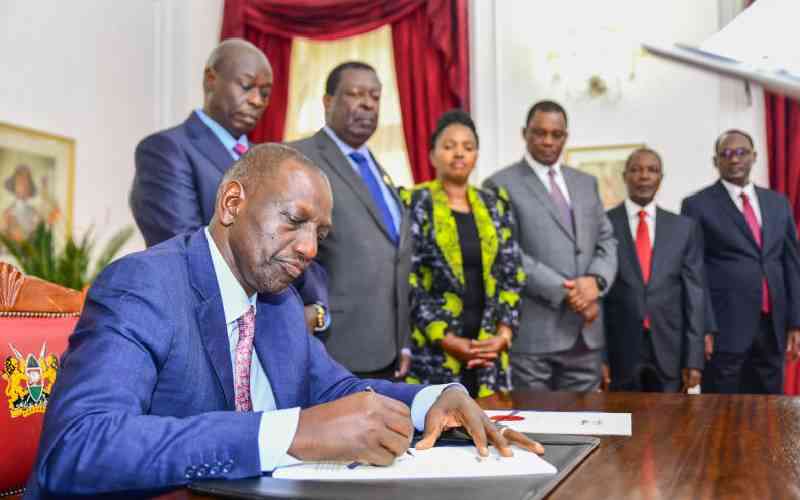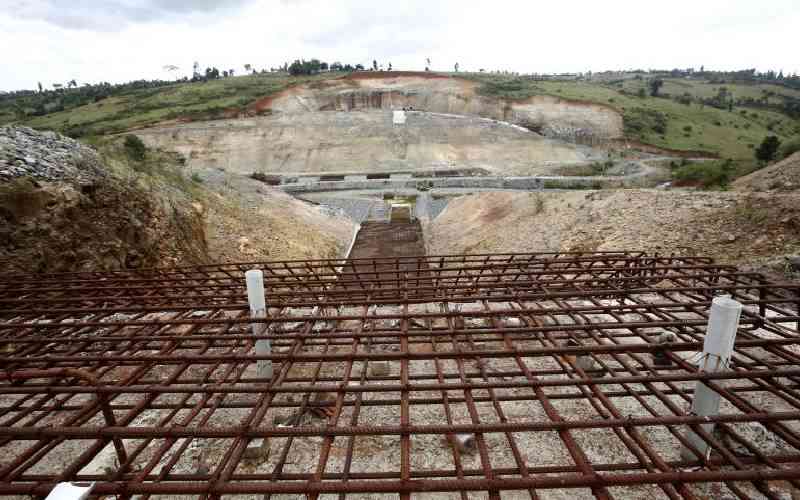For the umpteenth time we revisit the need to embark on civic education to help Kenyans make informed choices at the ballot during the March 4 General Election.
As is the common talk on streets Wakenya tumetoka mbali loosely translated to mean we have come a long way to the present level of reforms and democratic space.
But a lot still must be done to ensure voters are readied for the elections.
The Constitution has provided a new framework for the electoral system and reforms. The General Election will be conducted under this new framework. The system of governance is going to shift radically. We will have power dispersed from the capital, Nairobi, to 46 other counties.
The South Consulting Report of the Kenya National Dialogue and Reconciliation has noted how the General Election remains a mixed bag with several issues competing for attention, as the cancer of tribal groupings appears to be fashionable for some leading presidential aspirants.
A country that in 2002 appeared to exorcise the demons of tribalism has retrogressed worryingly and today all signs that most leaders will be elected on parochial considerations are only being reinforced by happenings in the political arena.
Fresh scars
While the Prosecutor of the International Criminal Court Fatou Bensouda embarks on a working tour of Kenya, the cases of four Kenyans facing crimes against humanity charges at The Hague remain as divisive as it is controversial.
The divisions are feeding into the electoral environment though many Kenyans are supportive of the ICC process and back attempts to end impunity.
Even as Ms Bensouda meets with victims who bore the brunt of post-election violence, the scars remain fresh and the wounds are not healing as fast as desired.
The Independent Election and Boundaries Commission (IEBC) is administratively preparing for the General Election and is building capacity of its staff in key areas for a smooth election. In sections of the media yesterday, the commission sought to explain how the controversial biometric voter registration (BVR) works.
That is a good effort and a step in the right direction, but how would such crucial information reach far-flung corners of the country, including islands such as Chale and Migingo, the historically marginalised Northern and North Eastern Kenya to ensure all Kenyans qualified to vote know what a BVR kit is, how it works, and how they will use it to elect leaders of their choice.
Beyond the BVR kit what lessons are being offered to voters some of whom are yet to know even the number of candidates they will cast their vote for and why.
Tribal groupings
Very few Kenyans know what the role of a governor is and how he differs from that of MP and Senator. The folks in most parts of Kenya still vividly think a councilor will have a role as was in the traditional wards.
Stay informed. Subscribe to our newsletter
Voter education must be undertaken urgently to inform citizens of their new roles in electing six leaders on March 4, the Election Day.
While the electoral commission is moving forward in preparation to conduct the free, fair, and democratic elections, other key players are still engrossed in retrogressive activities.
Political parties are approaching the election without making a break with the past in the eyes of many analysts. Party hopping, tribal groupings, and lack of structures are common characteristics.
Historical challenges
It is not clear how many Kenyans are duly and diligently registered as party members hence raising concerns as to whether political parties will ever be institutionalised.
A litmus test await parties when they begin nominations and whether the will of the people will freely prevail without undue interference from ‘party owners’ and ‘steakholders’ – the power clique.
The Constitution has also introduced quotas to ensure equity in representation along gender lines and to specifically address the historical challenges around the representation of women and marginalised groups.
The challenge, however, remains the lack of clarity on how to achieve this requirement without a constitutional amendment.
 The Standard Group Plc is a
multi-media organization with investments in media platforms spanning newspaper
print operations, television, radio broadcasting, digital and online services. The
Standard Group is recognized as a leading multi-media house in Kenya with a key
influence in matters of national and international interest.
The Standard Group Plc is a
multi-media organization with investments in media platforms spanning newspaper
print operations, television, radio broadcasting, digital and online services. The
Standard Group is recognized as a leading multi-media house in Kenya with a key
influence in matters of national and international interest.
 The Standard Group Plc is a
multi-media organization with investments in media platforms spanning newspaper
print operations, television, radio broadcasting, digital and online services. The
Standard Group is recognized as a leading multi-media house in Kenya with a key
influence in matters of national and international interest.
The Standard Group Plc is a
multi-media organization with investments in media platforms spanning newspaper
print operations, television, radio broadcasting, digital and online services. The
Standard Group is recognized as a leading multi-media house in Kenya with a key
influence in matters of national and international interest.

